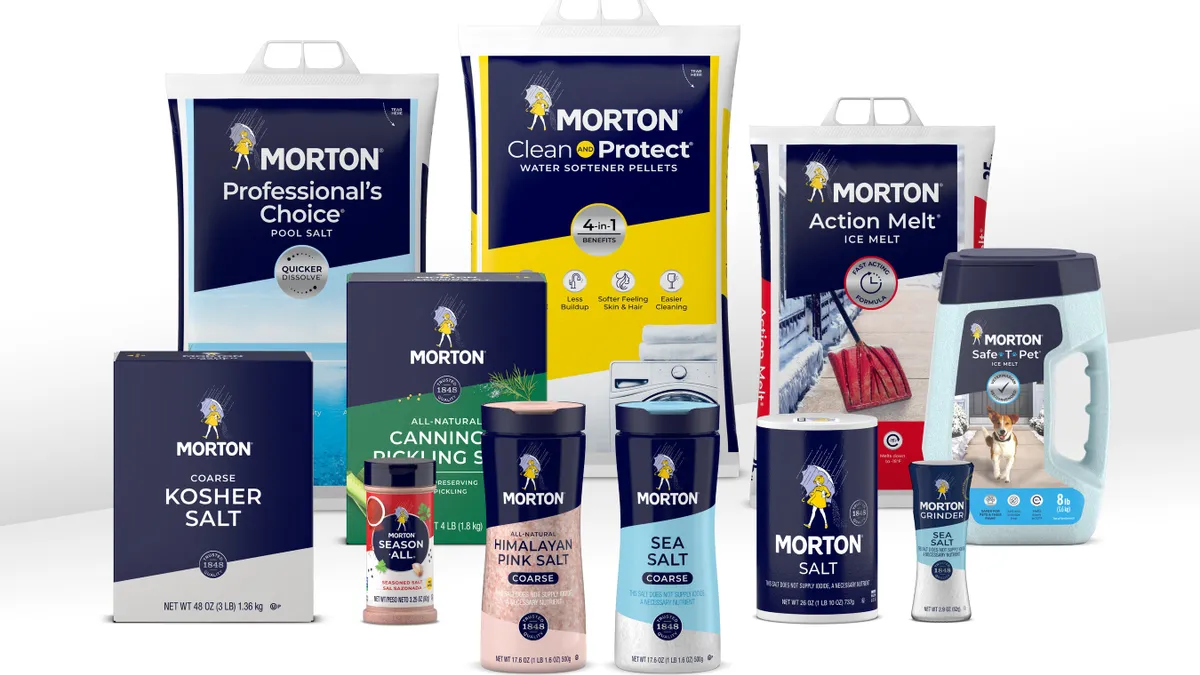Brief:
- Morton Salt plans to unveil an augmented reality (AR) experience for its culinary salts as part of a broader effort to refresh the look of its entire product line. The brand, which is owned by German mining company K+S, this year will add a QR code to its packaging that consumers can scan with a smartphone camera to see the AR content, per an announcement.
- The AR experience is one element of an integrated marketing campaign that includes in-store, digital and social media activations, along with influencer programs and public relations efforts. The AR content will include interactions with the brand's Morton Salt Girl mascot and recipe recommendations. The recipes will feature ingredients that people are most likely to have at home already, keeping with the brand's effort to eliminate food waste.
- Morton Salt created the AR experience for consumers who are spending more time making home-cooked meals and are bringing digital tools and technology into the kitchen, Denise Lauer, CMO of Morton Salt, said in the announcement.
Insight:
Morton Salt's planned AR experience aims to engage consumers with its brand as the company undertakes a major rebranding effort that includes a more contemporary design while preserving elements like the Morton Salt Girl, who was introduced in 1914. Younger consumers are more likely to seek experiences they can activate on their smartphones or share on social media, making AR content a key method of prolonging brand exposure and providing more information about a product.
Consumers can activate the AR experience as they're browsing grocery aisles, though that's less likely as many shoppers seek to limit the time they linger in stores during the pandemic. Morton Salt's recipe content in the experience is more geared for people making recipes at home with ingredients they already have. More than half (55%) of consumers said they're eating at home more often since the pandemic began, while 35% developed a newfound passion for cooking, sales and marketing agency Acosta found in a survey. Morton Salt can engage those consumers with its AR content.
AR content gives consumer packaged goods companies a way to make their packaging more interactive, effectively transforming it into a commercial or gamified experience. A variety of brands have either reworked their packaging or added QR codes to products to interact with mobile users in the past few years. Those brands include Pepsi, which this year printed QR codes on its cans to unlock an AR experience for soccer fans, and Coca-Cola, whose holiday campaign last year included its first large-scale AR experience that consumers activated by scanning specially marked cans and bottles. Similarly, Trident Gum last summer ran a campaign that urged mobile users to scan a QR code in its packaging to create music beats in an Instagram AR filter.












